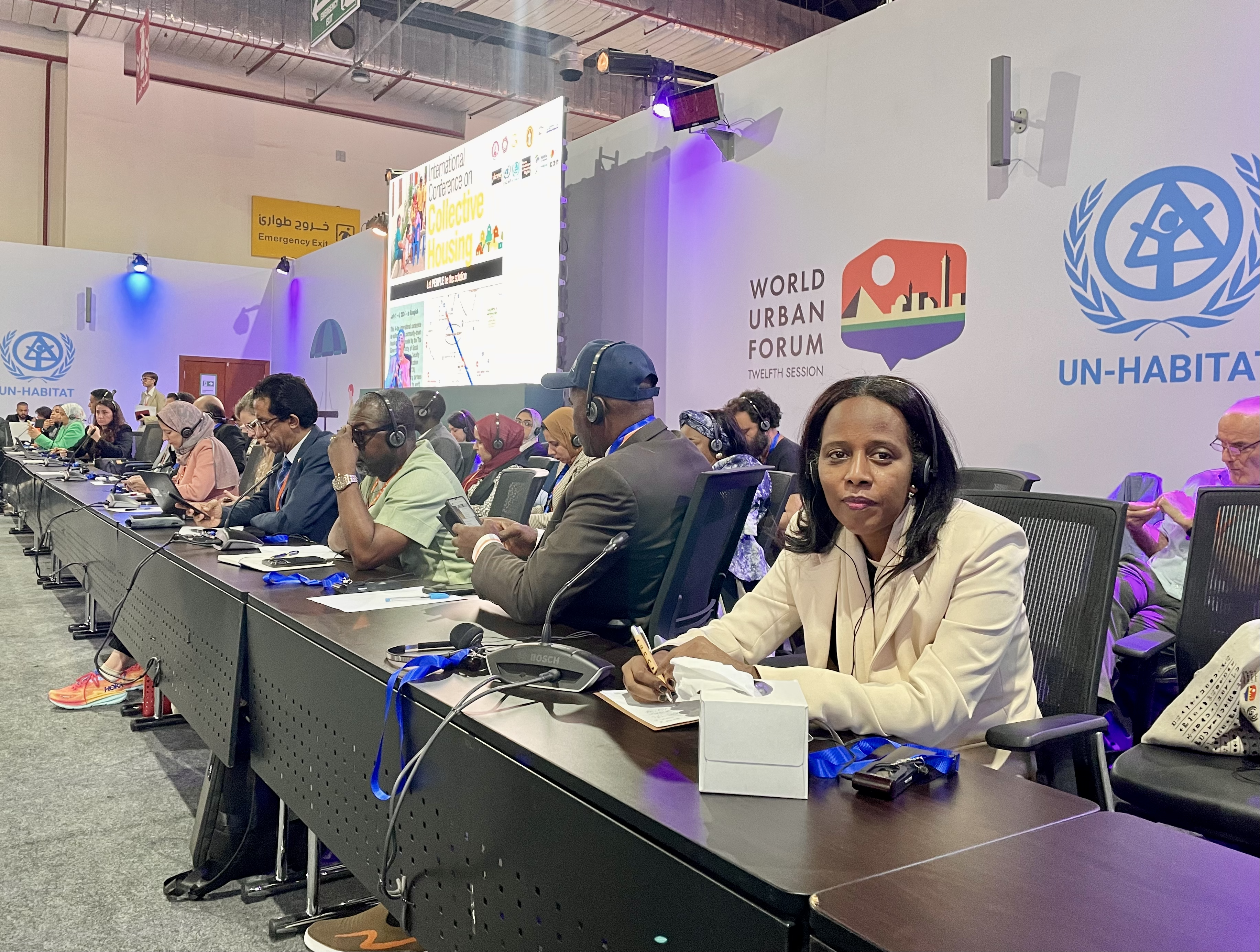WUF12 makes history: record attendance and a call to action for cities
A turning point for WUF
The final day concluded with a closing ceremony in the Arena, attended by government officials, speakers, and participants. Joining UN-Habitat Executive Director Anacláudia Rossbach were Ibrahim Saber Khalil, Governor of Cairo; Manal Awad, Minister of Local Development of Egypt; and Sherif El-Sherbiny, Minister of Housing of Egypt.
Rossbach described WUF12 as a turning point in the Forum’s history, noting that it set new records and reached unprecedented heights, with over 25,000 participants attending both in Cairo and online. She expressed deep gratitude to the Government of Egypt for their exceptional efforts in hosting the Forum and to everyone who contributed to its success.

Cairo Call to Action
A highlight of the ceremony was the unveiling of the Cairo Call to Action—a guiding document capturing the Forum’s key messages and proposed solutions to urban challenges. “I commend the conclusion of the Cairo Call to Action, which embodies the voices of WUF12, cutting across all stakeholders,” Rossbach stated, adding that UN-Habitat will draw on these insights for strategic planning from 2026 to 2029.
Thought leaders, representing local government, parliament, and youth, reflected on the Forum’s outcomes and the collective commitment captured in the Call to Action. Their insights underscored that localization is a community-wide effort that requires every member of society to play a role.
The ceremony concluded with Egypt officially passing the baton to Azerbaijan, host of WUF13, symbolizing the continued effort to drive forward the insights and momentum generated at WUF12.
Civil society: the bedrock of community participation
The Civil Society Roundtable at WUF12 brought together representatives from civil society organizations (CSOs), government, the private sector, and other stakeholders to address the pressing issue of limited civic engagement in urban planning, decision-making, and development processes.
“[We] really need to be proactive in working with the other sectors, so we can learn the language, so we can really engage […] and so they can understand where we’re coming from,” said Jane Katz, an international urban, housing and land advocate and advisor to the UN and other global organizations.
Participants underscored the challenges facing civil society globally, including restricted space for participation, dwindling funding, and the impact of political pressures and instability.
Discussions centred on the need for innovative, practical solutions and partnerships to reinvigorate CSO involvement and explored the idea of forming an imPACT coalition to build alliances across sectors for a new social contract, one that positions CSOs as essential partners in tackling urban challenges, from climate action to digital inclusion.
Academia: the engine of knowledge
Academia, the largest group of participants at WUF12, demonstrated its crucial role in generating knowledge, insights, and evidence-based strategies for urban planning. In the Academia Roundtable, scholars and researchers explored how research and data can help solve the climate-related urban housing crisis. They examined how data can inform strategies addressing housing affordability, access to basic services, and environmental sustainability.
Through interdisciplinary collaboration, knowledge co-production, and cross-sector partnerships, research can create innovative solutions tailored to diverse community needs. Shanshan Chen, a young researcher from China University of Mining and Technology, noted that the session helped her focus more on inclusivity, such as addressing the needs of the disabled population. It emphasized how to bring more people into the conversation and action, she added.
Pratima Singh, Principal with Economist Impact, found WUF12 a rewarding experience. She emphasized three key takeaways: the importance of collective action with all stakeholders working together, the role of data in decision-making, and the need to unlock private capital to advance the Sustainable Development Goals.
Urban Expo: a testing ground for innovative solutions
Exhibitors continued to showcase solutions for urban challenges, using the Expo as a platform to test ideas, gather feedback, and highlight their needs. First-time exhibitor Marie-Pierre McDonald, Vice President of BC2, a Canadian planning service agency, shared why her company chose to participate in WUF12. “People often think we have sufficient services, but it’s important to show that communities in Canada have needs too,” she said. BC2’s work with indigenous communities to rebuild homes aligns closely with WUF12’s theme, “It All Starts at Home,” driving their participation to share experiences and gain global insights.
Veteran exhibitor Donovan Rypkema of Heritage Strategies International has participated since WUF2. “There is no other platform like WUF to meet people with a shared interest in urban areas worldwide,” he said, noting a growing interest in heritage sessions and booths over the past 20 years. He emphasized that WUF offers invaluable opportunities to exchange knowledge, foster partnerships, and deepen the understanding of heritage’s role in sustainable cities.
Thank you for making WUF12 a success
As WUF12 concludes, we extend heartfelt thanks to all participants for your dedication, insights, and active engagement. Your voices have shaped meaningful conversations and strengthened our shared commitment to building inclusive, resilient, and sustainable cities. Carry these lessons home to drive positive change, and stay connected as we continue the journey toward WUF13 in Baku, Azerbaijan. Together, we build the future!
